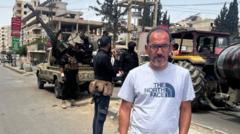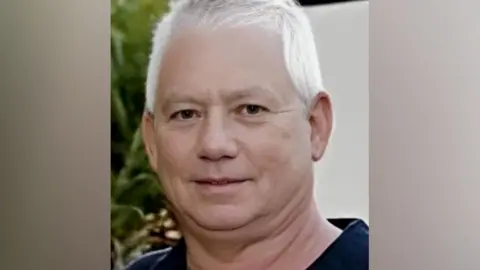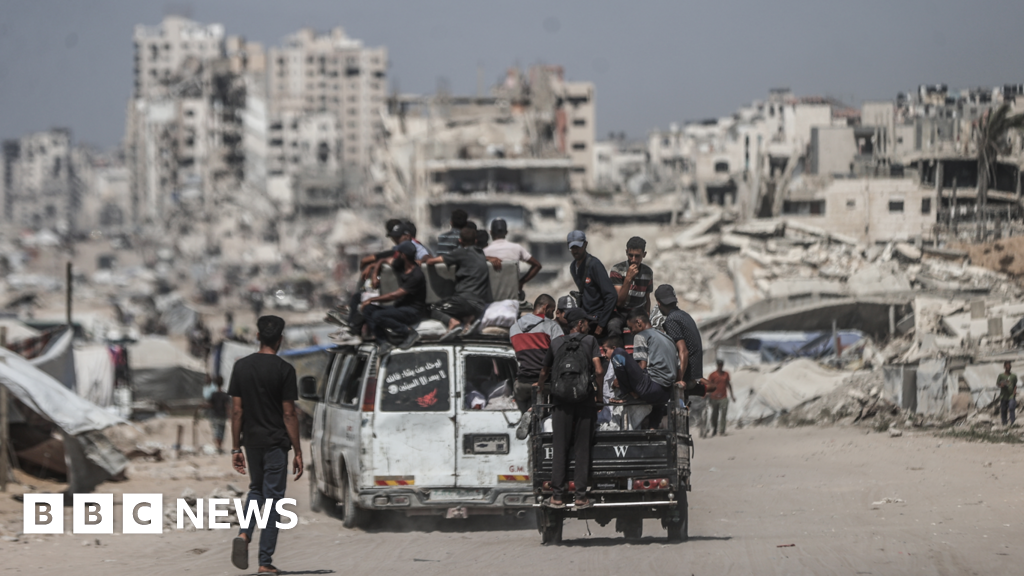On May 9, a BBC Arabic crew, comprised of seven members, set off from Damascus en route to Deraa province, intending to document the situation close to the Israeli-occupied Golan Heights. This area had recently seen increased Israeli military activity following Prime Minister's statements regarding indefinite control over a buffer zone created after the civil war in Syria.
As the team tried to get footage near a UN observation post in Al-Rafeed, they were informed by a UN official that Israeli forces were watching them. The team faced no initial disruption until they encountered an unguarded checkpoint where Israeli tanks were stationed, seemingly observing their every move. Despite their clear identification as a BBC crew, the situation escalated when four armed Israeli soldiers approached them about ten minutes after they began filming.
The soldiers swiftly confiscated their equipment and implemented a thorough search of their vehicle. My colleagues, realizing the gravity of their situation, tried to convey their journalistic intentions, but an Israeli soldier’s rifle was instantly aimed threateningly at my head. I managed to communication with my BBC team in London before further escalations during the detention.
After being led into Quneitra, the team remained in their car while soldiers scrutinized their footage. After hours of anxiety and confusion, a fractured approach was taken towards my personal detainment, initially separating me due to my asserted identity as a BBC journalist. While I faced questioning and invasive searches, I witnessed my team being strip-searched amidst blindfolding and restraint.
Despite enduring intensive interrogations that involved personal and invasive questioning, I maintained my composure as we were warned against approaching the borders in the future as Israeli forces threatened to track any published material. Following nearly seven hours in custody, the team was released in a remote area and directed to find their way back through the darkness to Damascus.
Ultimately, this encounter highlights the risks journalists face, especially in volatile regions like Syria, and underscores the importance of press freedom even amid precarious diplomatic tensions.
As the team tried to get footage near a UN observation post in Al-Rafeed, they were informed by a UN official that Israeli forces were watching them. The team faced no initial disruption until they encountered an unguarded checkpoint where Israeli tanks were stationed, seemingly observing their every move. Despite their clear identification as a BBC crew, the situation escalated when four armed Israeli soldiers approached them about ten minutes after they began filming.
The soldiers swiftly confiscated their equipment and implemented a thorough search of their vehicle. My colleagues, realizing the gravity of their situation, tried to convey their journalistic intentions, but an Israeli soldier’s rifle was instantly aimed threateningly at my head. I managed to communication with my BBC team in London before further escalations during the detention.
After being led into Quneitra, the team remained in their car while soldiers scrutinized their footage. After hours of anxiety and confusion, a fractured approach was taken towards my personal detainment, initially separating me due to my asserted identity as a BBC journalist. While I faced questioning and invasive searches, I witnessed my team being strip-searched amidst blindfolding and restraint.
Despite enduring intensive interrogations that involved personal and invasive questioning, I maintained my composure as we were warned against approaching the borders in the future as Israeli forces threatened to track any published material. Following nearly seven hours in custody, the team was released in a remote area and directed to find their way back through the darkness to Damascus.
Ultimately, this encounter highlights the risks journalists face, especially in volatile regions like Syria, and underscores the importance of press freedom even amid precarious diplomatic tensions.




















